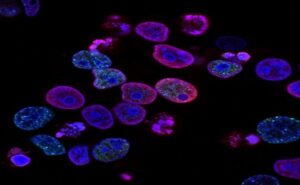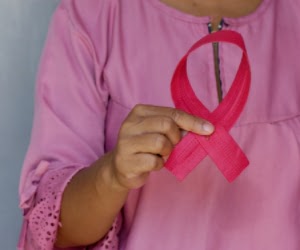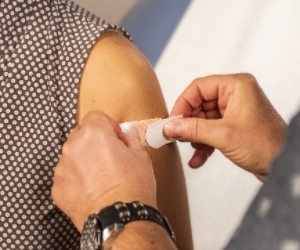April 2024 Vaccines For Children
Your Baby’s Immune System: According to the CDC, Immunity is the body’s way of preventing disease. Because a baby’s immune system is not fully developed at birth, babies face a greater risk of becoming infected and getting seriously ill. Vaccines help teach the immune system how to defend against germs. Vaccination protects your baby by helping build up their natural defenses.

- Children are exposed to thousands of germs every day. This happens through the food they eat, the air they breathe, and the things they put in their mouth.
- Babies are born with immune systems that can fight most germs, but some germs cause serious or even deadly diseases a baby can’t handle. For those, babies need the help of vaccines.
- Vaccines use very small amounts of antigens to help your child’s immune system recognize and learn to fight serious diseases. Antigens are the parts of a germ that cause the body’s immune system to go to work.

Why Your Child Should Get Vaccinated:
It is always better to prevent a disease than to treat one after it occurs.
- Vaccination is a safe, highly effective, and easy way to help keep your family healthy.
- The recommended vaccination schedule balances when a child is likely to be exposed to a disease and when a vaccine will be most effective.
- Vaccines are tested to ensure they can be given safely and effectively at the recommended ages.
March is Colorectal Cancer Awareness Month

Colorectal cancer is cancer of the colon or rectum. Colorectal cancer does not always cause symptoms, especially at first. Someone could have colorectal cancer and not know it. That is why getting screened regularly for colorectal cancer is so important.
According to the CDC, if you have symptoms, they may include—
A change in bowel habits.
Blood in or on your stool (bowel movement).
Diarrhea, constipation, or feeling that the bowel does not empty all the way.
Abdominal pain, aches, or cramps that don’t go away.
Weight loss and you don’t know why.
If you have any of these symptoms, talk to your doctor. They may be caused by something other than cancer. The only way to know what is causing them is to see your doctor.
Regular screening, beginning at age 45, is the key to preventing colorectal cancer. Screening tests can find precancerous polyps, so that they can be removed before they turn into cancer. Screening tests can also find colorectal cancer early, when treatment works best.
October Is Breast Cancer Awareness Month

What Is Breast Cancer?
Breast cancer is a disease in which malignant (cancer) cells form in the tissues of the breast. There are many different types of breast cancer that can affect both women and men.
Early Detection
According to the American Cancer Society, when breast cancer is detected early, and is in the localized stage, the 5-year relative survival rate is 99%. Early detection includes doing monthly breast self-exams, and scheduling regular clinical breast exams and mammograms. It is recommended to learn more about breast self examination to increase chances for early detection.
Signs and Symptoms of Breast Cancer According to The National Breast Cancer Foundation:
A Change In How The Breast Or Nipple Looks Or Feels
- Nipple tenderness or a lump or thickening in or near the breast or underarm area
- A change in the skin texture or an enlargement of pores in the skin of the breast (some describe this as similar to an orange peel’s texture)
- A lump in the breast (It’s important to remember that all lumps should be investigated by a healthcare professional, but not all lumps are cancerous.)
A Change In The Breast Or Nipple Appearance
- Any unexplained change in the size or shape of the breast
- Dimpling anywhere on the breast
- Unexplained swelling of the breast (especially if on one side only)
- Unexplained shrinkage of the breast (especially if on one side only)
- Recent asymmetry (unequal or lack of sameness) of the breasts. Although it is common for women to have one breast that is slightly larger than the other, if the onset of asymmetry is recent, it should be checked.
- Nipple that is turned slightly inward or inverted
- Skin of the breast, areola, or nipple that becomes scaly, red, or swollen or may have ridges or pitting resembling the skin of an orange
- Any Nipple Discharge—Particularly Clear Discharge Or Bloody Discharge
Things to do this Breast Cancer Awareness Month
- If you delayed your annual mammogram because of COVID-19, schedule your appointment now and encourage your friends and family to do the same.
- Learn more about breast cancer and how it affects people’s lives
Photo by Angiola Harry on Unsplash
September is World Alzheimer’s Month

Facts About Alzheimer’s Disease According to the CDC
- Alzheimer’s disease is the most common form of dementia. Dementia is a brain condition that affects parts of the brain that control thought, memory, and language.
- Alzheimer’s disease and related dementias can seriously affect a person’s ability to carry out daily activities.
- The risk of developing Alzheimer’s disease increases with age, but Alzheimer’s disease is not a normal part of aging.
- Most people living with Alzheimer’s disease are older than 65 years. However, people younger than age 65 can develop Alzheimer’s disease but it is not common.
- Scientists do not know what causes Alzheimer’s disease. However, like other chronic conditions, it is probably a result of multiple factors.
- Controlling high blood pressure, exercising regularly, and quitting smoking may reduce your risk of Alzheimer’s disease.
When is memory loss more than forgetfulness?
Alzheimer’s disease is not a normal part of aging. According to the CDC, memory loss is typically one of the first warning signs of Alzheimer’s disease, but occasionally forgetting words or names does not mean a person has Alzheimer’s. There are other signs that someone in the early stages of Alzheimer’s disease may experience in addition to memory problems. In the early stages of the disease, these can include:
- Getting lost in familiar places.
- Having trouble handling money and paying bills.
- Repeating questions.
- Taking longer to complete normal daily tasks.
- Displaying poor judgment.
- Losing things or misplacing them in odd places.
- Displaying mood and personality changes
Photo by Milad Fakurian on Unsplash
August Is National Immunization Awareness Month

Getting Vaccinated Is Safer Than Getting Sick
Per the CDC, vaccines help the body learn how to defend itself from disease without the dangers of a full-blown infection. The immune response to a vaccine might cause tiredness and discomfort for a day or two, but the resulting protection can last a lifetime.
Everyone Should Get Recommended Vaccines on Schedule
History shows that vaccines are the safest, most effective way to protect yourself and your family from many preventable diseases.
Per the CDC, Everyone should get all recommended vaccines at the recommended times. It is especially important for children and adolescents to get catch-up doses of any missed vaccines or vaccine doses as soon as they can. Adults should get all recommended vaccines for their age or other risk factors such as health condition or occupation. All adults should get tetanus boosters, seasonal flu and COVID-19 vaccines, and any vaccines missed in childhood.
Why National Immunization Awareness Month Is Important According To National Today:
- Immunization protects our children and loved ones
Vaccination protects children and adults from serious illness and complications of many diseases, including amputation of an arm or leg, paralysis of limbs, hearing loss, convulsions, brain damage, and death. - Immunization is safe
Vaccination is safe and effective. All vaccines undergo long and careful review by scientists, doctors, and the federal government to make sure they are safe. - We owe it to everyone
We all have a public health obligation to our communities to protect ourselves as well as others from potential health risks. By getting vaccinated, we eliminate diseases before they have a chance to spread.
